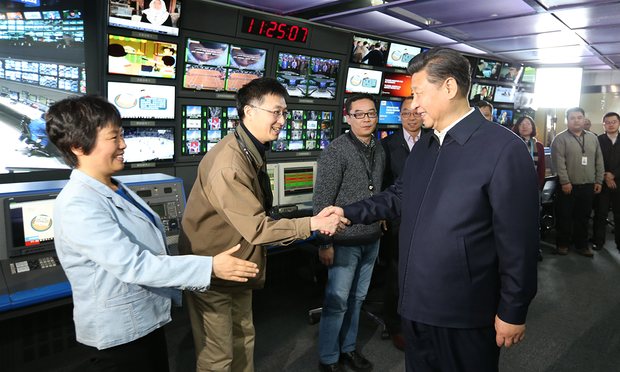Chinese media are forbidden to publish news without the consent of the authorities

Sina is a company that owns the country's largest online portals (photo: BBC)
Chinese authorities have banned the country's main online media from publishing news without approval from the regulator. This directive came out after a number of major news portals, including Sohu.com Inc. and NetEase Inc. published materials citing unconfirmed sources of information.
The Chinese Cyberspace Administration of China (CAC) has stated that these resources have violated the country's online legislation. Published news, the sources of which are not official and not confirmed, caused a "tremendous negative effect."
On Friday, CAC ordered to stop publishing “current news”. From now on, both the already mentioned resources and other Chinese online media should only publish information that has been agreed with the authorities. The order concerns news concerning the most important areas - politics, economics, social problems and foreign events. Now, the news will first be provided to government representatives in the press and online media in the form of reports. And only after consideration of reports and approval of materials, the latter can be published on the websites of information companies.
')
Perhaps the orders of the CAC - a consequence of statements by President Xi Jinping. He repeatedly stressed the importance of the loyalty of the Chinese Communist Party to the media.
So far, representatives of online media are preparing for the transition to new working conditions. The administration of these companies in many cases either does not respond to requests, or refuses to comment on current events.
Bloomberg journalists believe that China’s news services have so far been exempted from the need to get approval from the authorities. In addition, information companies were not obliged to supply original content — it is not necessary to hire a reporter or editor to publish news. Primary sources could be very different. News resources in China were something of a “gray zone” where the laws of China were respected with a number of reservations.

Xi Jinping holds a meeting with representatives of CCTV, where he asked editors to be as loyal to the party as possible.
All this stopped after the resources mentioned above published materials about corruption in the higher echelons of power. Also a number of articles related to social and legal topics. For example, at the beginning of the year, NetEase published information about the investigation into a case involving a representative of the Chinese security forces. According to the publication, this man was able to make a successful career thanks to political and business ties. Now this official is being judged because of human rights violations and corruption. It is about the head of the security apparatus of Hebei Province. Publication deleted, tried to hush up the case.
Now, Chinese officials fully control the country's information resources. The Chinese Cyberspace Administration has been granted the right to fine sites that violate the new rules.
Now in China, the authorities are trying to deal with negative comments and posts in social networks. The goal is to provide positive and healthy cyberspace. In the PRC, control over the distribution of news on social networks is also increasing. One of the requirements for online media and social resources is the requirement to disseminate true, objective and impartial news reports. Unverified information from social networks is now forbidden to publish.
This year, officials also held a series of talks with the country's largest Internet companies on the launch of a pilot project, the purpose of which is to strengthen the control of the authorities over the Chinese telecommunications sector. The idea is for the representatives of the authorities to occupy seats on the boards of directors of such companies. The state also asks for a minimum of 1% of shares in such companies. A similar scheme is also offered online media. If they accept such conditions, they get the right to publish news every day.
Source: https://habr.com/ru/post/356058/
All Articles